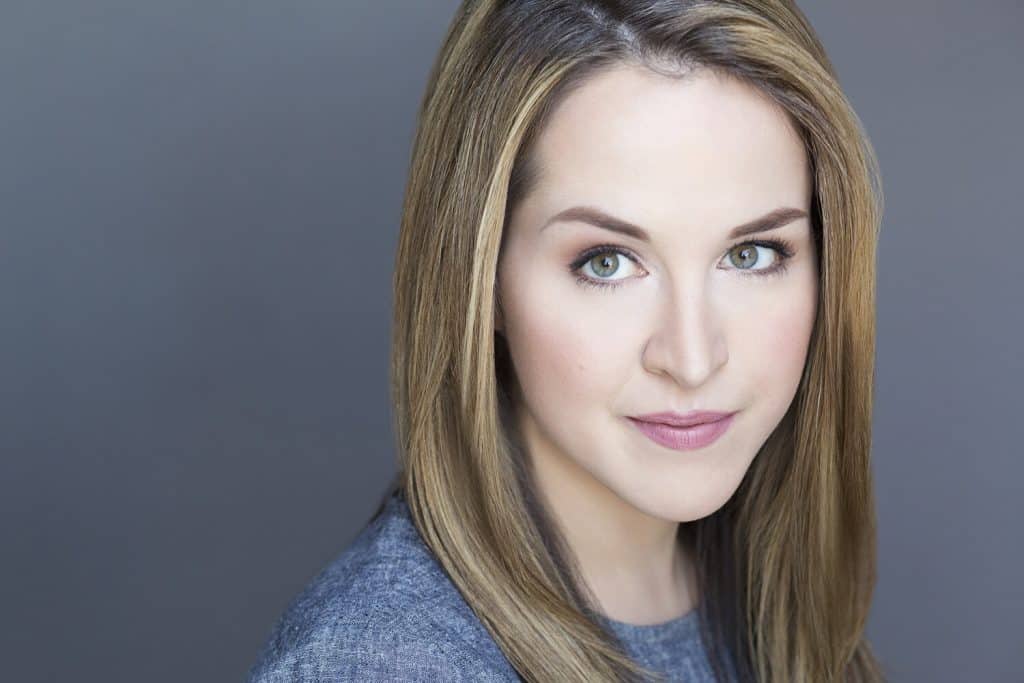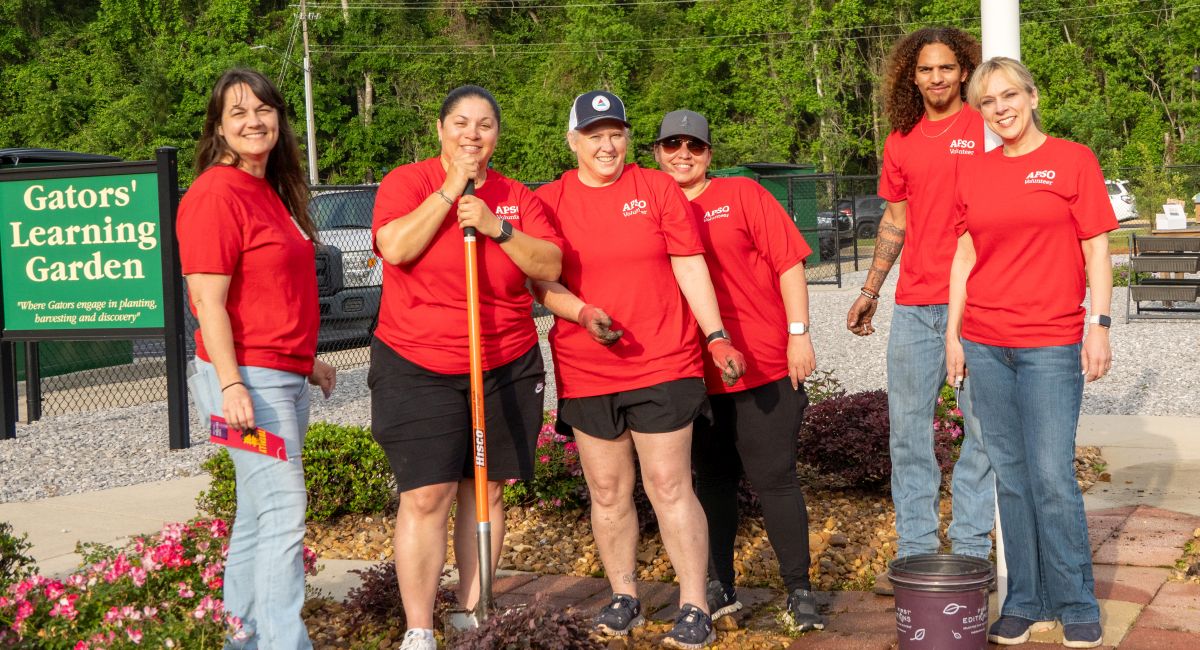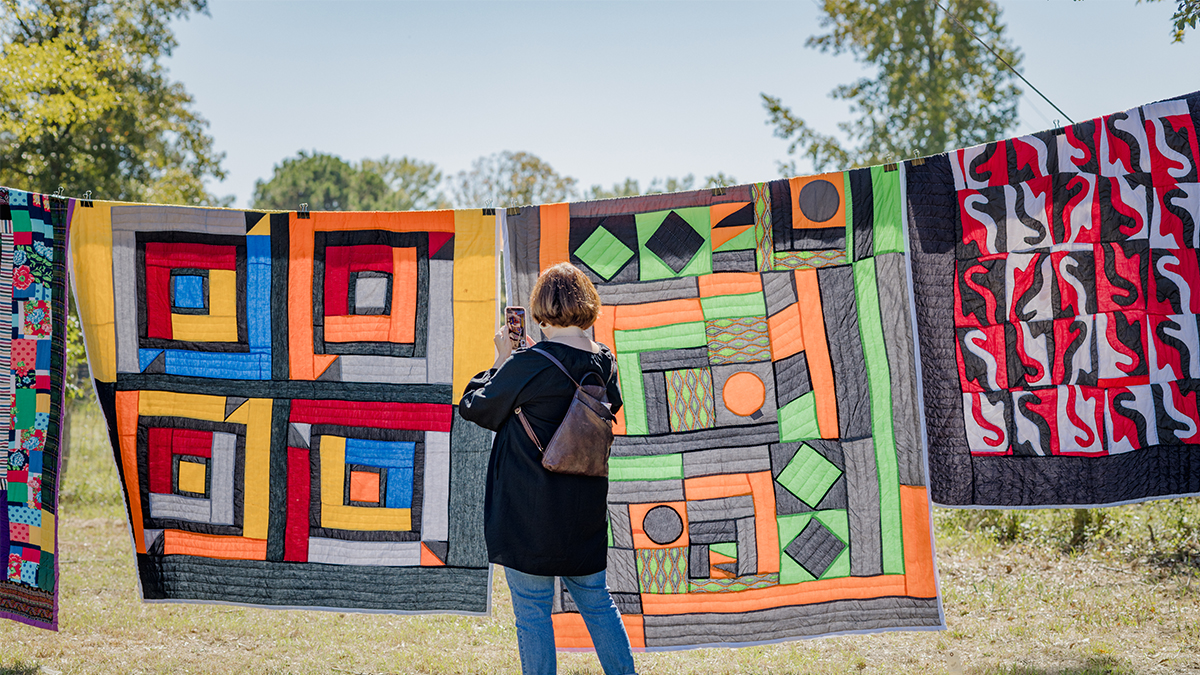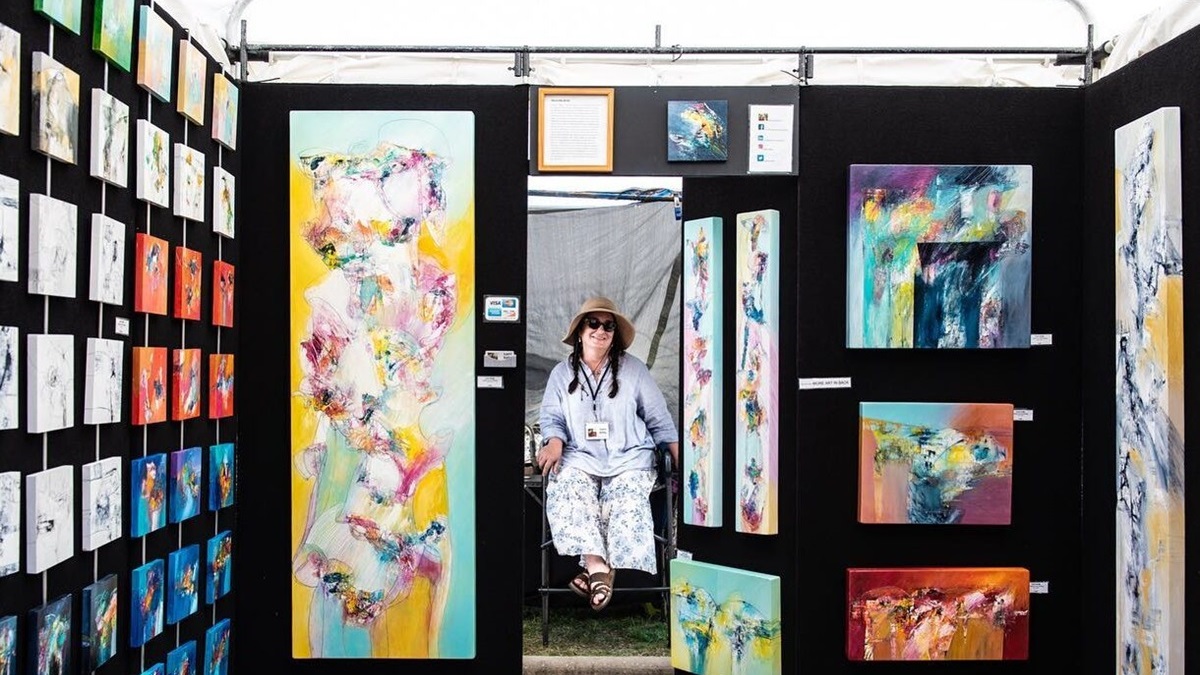‘Shrek’ star Alie B. Gorrie is on a mission to make the arts more inclusive for people with disabilities

Birmingham's Alie B. Gorrie, center, stars as Princess Fiona in "Shrek: The Musical" at Red Mountain Theatre. (Photo/Stewart Edmonds)
When Alie B. Gorrie quotes a line from “Shrek: The Musical,” which she’s currently starring in as Princess Fiona at Red Mountain Theatre in Birmingham, it carries a lot more weight than an actress just talking about her character.
“There’s a line in the show that says, ‘What makes us special makes us strong,’” she says.
Yes, it refers to Fiona and Shrek, the two ogres who find true love in the musical based on the hit animated movie, but it also deeply resonates with Gorrie, who, in the theater world, is about as special as it comes.
She’s a fine performer – a singer, actress and expert tap dancer – and an activist and fundraiser who has raised more than $1 million for low-vision research through her Songs for Sight organization, created to raise awareness and funds for the University of Alabama at Birmingham and the EyeSight Foundation of Alabama.
It’s personal for Gorrie, who was born with optic nerve hypoplasia, a rare eye disease that means she has tiny optic nerves that are underdeveloped.
“I have never known life without an eye disease or low vision,” says Gorrie, who stars in “Shrek” with Caleb Clark. Her left eye is legally blind, and the vision in her right eye is relatively clear, but peripheral vision and things coming at her “aren’t the easiest to navigate.”
RELATED: Birmingham’s Alie B. Gorrie puts spotlight on disabled performers in new Amazon series
That makes it all the more interesting that Gorrie chose to pursue a career that often finds her onstage in the dark, or with others in front of her or behind her while she’s running on and off the stage.
She was raised not to let things like that deter her. “I give my parents a lot of credit for letting me try anything I wanted to growing up,” Gorrie says. “If I wanted to play softball, they said, ‘OK.’ Who lets their kids with low vision play softball? … I see the other end of the spectrum now because I see so many kids with low vision whose parents just keep them in a bubble. But I was not kept in a bubble.”

Alie B. Gorrie
That went for performing, too. Gorrie started voice lessons at age 6 and spent years in theater camps with Summerfest and then Red Mountain Theatre. She earned a musical theater degree from Belmont University in 2015 and then was off to New York, where she found steady work as a performer, instructor and activist – fighting for disability inclusivity on stage and screen.
RELATED: Two Birmingham actresses making debut at New York’s 54 Below
None of it has been easy, particularly when it comes to her performing career.
“There have been moments where I remember being told as a kid, ‘Well, you should never do film and TV, because if you can’t see the camera, no one will want to work with you,” she says. “That sheds a bigger light on the education and pipeline barriers for disabled artists. I think a lot just give up, because they’re straight-up told, ‘We don’t know how to educate you, and we don’t know how to teach you.’”
Gorrie didn’t give up. In fact, she started facing those challenges head-on.
“When I go into a dance audition, I immediately find the choreographer, and I say, ‘Hi. I will not be switching lines today, and I will learn this right next to you on the front row, and I will not leave your side until I have to perform this in front of the audition table,’” Gorrie says. “And I often know by the way that choreographer responds if that’s a project I want to work on or not. Sometimes they’ll be like, ‘Come on, let’s go, what do you need, I’m here to support you.’ But sometimes, they’ll say, ‘Well, if you can’t see enough to do the audition, then why do you even do this?’”
It’s moments like the latter that Gorrie is trying to ensure happen less frequently in the arts, both through her work, including a podcast she hosted featuring artists with disabilities, and her own experiences.
“When I moved to New York, I’ll never forget the first show I saw where disability was represented in a way that the whole story wasn’t about disability,” Gorrie says. The show was “Sam’s Room,” a musical about a young man with special needs.
“The character was not a victim,” Gorrie recalls. “It was a part of the story, but it wasn’t the whole story, and it blew me away. I had never seen that, and it kind of set the course for what I wanted to do in terms of the kind of work I want to create and the kind of people I want to work with and the importance of representation.”
So it was no surprise that a few years ago, Gorrie came home to Birmingham to perform a cabaret show with a deaf friend of hers as part of Red Mountain Theatre’s Human Rights Festival. That was in March 2019.
“I had a suitcase with 10 days full of clothes, and I used that suitcase for about three months until I felt safe enough to pack up my whole apartment in New York,” Gorrie says.
The pandemic had made Gorrie do something she really never intended to do – move back to Birmingham. And she definitely never intended to stay, until she watched Red Mountain Theatre’s new arts campus being built.
“There was something really captivating and exciting and energizing about a theater being built when every other theater in the country was being forced not to,” she says.
Gorrie took a job at Red Mountain in community engagement, and she’s built some inclusion into her position, as well. She works a lot to bring theater to kids who might not otherwise get to see it, and in her disability and inclusion role, she helps make sure marketing materials are accessible and also works on sensory inclusive performances of shows. With “Shrek,” for instance, a sensory inclusive performance will raise the lights a bit more than a normal performance and allow audience members – many of whom are children with autism, Down syndrome or other conditions – to experience the show in ways that won’t startle them.
“For the actors, the show stays the same,” Gorrie says. “We’re just giving the audience more tools to use and be in the space without feeling like they’re in someone’s way.”
“Shrek,” in particular, has a wonderful message about inclusivity, Gorrie says.
“In this show, you get to see this group of people who are all totally different coming together,” she says.
Fiona is a character who is ashamed of herself, particularly the way she looks, through much of the musical.
“She has these really negative core beliefs about who she is … but Shrek begins to soften her a little bit,” Gorrie says. “As terrifying as that is for her, she begins to see that someone like her is actually pretty great. … She ends the show in her ogre form and embraces it, because she realizes there’s a person out there that will love her in her current form and as she looks.”
Gorrie continues to audition for shows in New York and elsewhere, and she consults with other theaters about inclusion issues, but she doesn’t see leaving Birmingham anytime soon.
She recently bought a house, and she’s reveling in a job that allows her to be in a theater every day.
“I don’t see myself leaving anytime soon,” Gorrie says. “I think Birmingham will forever be my home base.”
“Shrek: The Musical” is at Red Mountain Theatre through June 25.





